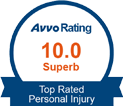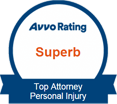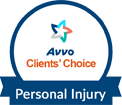When serious collisions or accidents occur, including those involving trucks, boats, motorcycles, and cars, the people involved often sustain severe and catastrophic injuries. While several accidents have no or little long-term impacts, catastrophic injuries can give your life a turn you did not expect.
Aside from expensive medical expenses, catastrophic injuries can affect your ability to work and your quality of life. If you or a loved one have sustained a catastrophic injury caused by another person's negligence, you could qualify for compensatory damages. In most cases, retaining the services of an attorney when you have a catastrophic injury is critical.
A skilled personal injury attorney can investigate your accident case and prepare a compensation claim against the at-fault party as you undergo treatment and recuperate. If you are wondering what options you have after sustaining a catastrophic injury, this article is yours.
What is a Catastrophic Injury?
A catastrophic injury is any injury that can cause chronic disability, debilitation, and permanent loss of your ability to perform gainful work. Generally speaking, a catastrophic injury involves long-term or permanent pain or loss of functions of a body organ or limb.
While every injury has the potential to be serious and traumatic, not all injuries qualify as catastrophic injuries. Below are a few examples of catastrophic injuries:
- Injuries causing deafness or blindness.
- Spinal cord injuries.
- Severe burn injuries.
- Disfigurement.
- Traumatic brain injuries (TBI).
- Chronic lung damage.
- Paralysis.
- Chronic damage.
- Loss of a limb or amputation.
- Severe burn injuries.
In most cases, catastrophic injuries arise from the following:
- Car or auto accidents.
- Construction accidents.
- Motorcycle accidents.
- Truck accidents.
- Cases caused by defective products.
Regardless of the cause of your catastrophic injury, you have legal options. A reliable attorney can help you hold the at-fault party liable for your catastrophic injury and other losses associated with the injury.
Compensation Options That You Have if You Have Sustained a Catastrophic Injury
If you have sustained a catastrophic injury due to another person's negligence or recklessness, you can pursue compensatory damages for your losses in various ways, such as:
Arbitration
Arbitration is a popular alternative dispute resolution (ADR), which you can consider if you have sustained a catastrophic injury caused by another person's fault. During arbitration, the defendant and your attorney will present his/her evidence and arguments before an arbitrator, who will decide the case's outcome.
After listening to the defendant's and your attorney's arguments, the arbitrator will determine where the liability lies, whether you deserve damages for your losses, and the amount you should receive. Like a judge, an arbitrator is a neutral decision-maker in injury cases.
It is worth noting that arbitration occurs when both parties (plaintiff and defendant) agree to this alternative dispute resolution option. That means no party can force or coerce the other to agree to arbitration. Below are vital issues that you and the defendant must agree on in advance before arbitration:
- Who will serve as the neutral arbitrator for the case.
- Who will settle the arbitration fee.
- Whether the arbitrator's decision will be binding or non-binding.
- How to present evidence to the arbitrator.
- Rules for presenting evidence to the arbitrator.
- The minimum and maximum award to expect from the case.
After the closing arguments, the arbitrator will tell you and the defendant when to expect the final decision on the case. In most cases, the arbitrator will write his/her final decision and send it to the defendant and your attorney. Unlike a trial, arbitration is cost-friendly and faster. Below are some tips that can increase your chances of winning your arbitration:
- Organize your evidence.
- Prepare how you will testify and what to say.
- Analyze and review your eyewitness testimonies.
- Use diagrams, photograms, and drawings of your catastrophic injury to strengthen your arguments.
Mediation
Another way you can settle your compensation claim resulting from medical malpractice, a workplace accident, or an auto accident without going through the lengthy trial process is through mediation.
Like arbitration, during mediation, the defendant and your attorney will come together before a third party (the mediator), who will help you resolve the case and reach a mutually agreeable solution. If you decide to resolve your compensation claim through mediation, the defendant and your attorney must agree on who will serve as the mediator in the case.
While mediation is a voluntarily agreed-upon alternative dispute resolution option, sometimes the court could order you to undergo mediation before your case becomes a lawsuit. What to expect during mediation:
- Discussion of preliminary issues.
- You or your attorney will have a chance to tell your side of the story and the value of your compensation claim.
- The defendant or his/her attorney will speak his/her side of the story and explain why they should pay less.
- The mediator will separate your attorney and the defendant's attorney for the rest of the mediation to allow private talks with each party.
It is worth noting that everything you discuss with the mediator during the negotiation process is confidential, meaning the defendant's attorney cannot use it against you at trial. A reliable mediator will keep the defendant and your attorney talking and working to reach a fair settlement agreement. He/she will also remind the defendant and your attorney how risky it could be if your case proceeds to trial.
When you reach a fair settlement, the defendant and your attorney will sign a written agreement that memorizes the conditions of the settlement deal. Then, your attorney will prepare and file the required paperwork with the court to pay your claim. If you have a seasoned attorney, he/she can help you negotiate for a fair settlement award for your losses resulting from the catastrophic injury.
Whether mediation is an ideal way to resolve your compensation claim is an issue your attorney can help you decide. The benefits of this alternative dispute resolution method include the following:
- It Is pocket-friendly.
- It is not time-consuming.
- You do not need documents and arguments for mediation.
If the defendant's settlement offer is below your expectations, your attorney can file a lawsuit against him/her to obtain adequate compensatory damages for your losses.
Litigation
While most personal injury cases settle outside of the courtroom, sometimes filing a lawsuit against the at-fault party could be necessary to obtain compensation for your losses resulting from the catastrophic injuries. When determining whether your case should proceed to trial, the defendant and your attorney will explore various factors, including:
- Your family situation.
- Your age.
- The extent of your catastrophic injuries.
- Your income and earning capacity.
- Whether you suffered property damage or lost wages.
- Your rehabilitation and medical expenses.
- Whether the defendant is sympathetic or willing to give you a fair settlement offer.
- How egregious or reckless the defendant's actions were.
Once the court schedules your case for trial, your attorney's argument and evidence will determine whether you will receive compensation for your losses. Here are six steps to a trial that you ought to be familiar with if you have an injury claim:
-
Jury Selection
Generally speaking, a jury will decide the outcome of your case after listening to and reviewing the defendant's and your attorney's evidence. The court will use a process known as voir dire to select twelve jurors to decide whether or not you, the plaintiff, have a valid compensation claim.
-
Opening Statements
After jury selection, the defendant and your attorney will deliver their opening statements. Your attorney will go first since he/she bears the legal burden of proving the defendant is liable for your injuries and associated damages. This step of the trial process gives the defendant and your attorney a chance to tell their side of the story about the case.
-
Your Evidence Presentation
Your attorney will present your case first since you have the legal burden of proof at trial. To strengthen his/her arguments, your attorney can summon eye witnesses to testify. For example, to prove to the court how the accident occurred, your attorney would ask an eyewitness to testify about what he/she saw before and after the accident.
Other evidence your attorney can use to support his/her arguments at trial for the best possible outcome includes:
- Surveillance videos.
- Police reports.
-
The Proof That The Defendant Presents
The defendant's presentation of proof criteria is similar to yours. The at-fault party's attorney could call on eyewitnesses to address the jury on the most important aspects of the case. Typically, the eyewitnesses' testimonies will support the defenses and arguments of the defendant in the case that led to your injuries and financial losses.
-
Closing Arguments
After presenting their proof, the defendant and your attorney will deliver their closing arguments and speak about the evidence presented in the case. This stage of the trial process also gives the defendant's attorney and your attorney a chance to do the following:
- Convince the twelve jurors to reach a common conclusion.
- Give a judgment in favor of a specific party.
-
The Jury Instructions and Deliberation
After presenting the closing arguments on the case, the jurors will move to a separate room to decide an appropriate and fair verdict based on the arguments and evidence presented by the defendant's attorney and your attorney. Depending on the complexity of your case, the jurors could take a few hours, days, or weeks before reaching a verdict.
-
The Jurors Reach a Judgment or Verdict
Once the jurors decide on your case verdict, they will inform the judge, who will deliver the guidelines and instructions to the courtroom. Then, the judge will read this verdict in the presence of the defendant's attorney and your attorney before making it a formal court record.
How long the trial process will take before reaching a verdict depends on your case's complexity and the court procedures involved.
Arbitration, mediation, and litigation are excellent compensation options you can consider if you have a catastrophic injury. The compensation option of your choice will depend on the facts of your unique case and your attorney's experience in personal injury cases, especially those that involve catastrophic injuries.
When deciding which compensation option is best for your unique case, you should consider the following factors:
- The relationship you have with the at-fault or liable party.
- The amount of compensation you believe your losses are worth.
- Whether you are ready to put up additional costs to obtain your damages.
Unlike a trial, when you decide to pursue your compensatory damages through mediation or arbitration, you will spend little money and time on your case. Nonetheless, if the defendant or his/her insurer is unwilling to award you adequate compensatory damages for your losses, taking your case to trial would be a brilliant idea.
Tips on How to Obtain Maximum Compensatory Damages for Your Catastrophic Injuries
Once the dust settles after a catastrophic accident that left you with severe injuries, your attorney can help you formulate a strategy for seeking damages from the at-fault party. Although the damages you will receive cannot restore your health, they can help you live a comfortable life after sustaining catastrophic injuries caused by another person's negligence.
The tips explained below can help you obtain a favorable settlement if you have a compensation claim:
Know Your Claims Worth or Settlement Amount
You should include your estimation of the value of your compensation claim in the demand letter you will send to the at-fault party. Before you enter into settlement negotiations with the at-fault party's insurance adjuster, you should have a settlement amount you can receive as damages for your losses resulting from the catastrophic injuries.
However, during settlement discussions, you are not obligated to disclose this sum to the insurance adjusters. Unless the insurance adjuster brings up a crucial issue or facts your attorney did not consider when calculating your claim's monetary value, you should stick to the amount you believe your claim is worth.
Retain the Services of a Reliable Attorney
Retaining the services of a personal injury attorney is undoubtedly a decision you cannot regret if you have a compensation claim after sustaining a catastrophic injury. The attorney you will choose will help you do the following to increase your odds of obtaining substantial compensation for your losses:
- Determine the liable or at-fault party in the incident that led to your catastrophic injuries.
- Determine the best cause of action to obtain damages for injuries and losses caused by catastrophic injuries.
- Negotiate with insurance adjusters of the at-fault party to obtain fair compensation for your losses.
- Calculate your claim's worth, including all the subjective losses you have experienced, like pain and suffering and loss of enjoyment in life.
- Gather evidence you will need at trial to prove that the defendant led to your injuries.
- Inform you of your legal rights during the litigation process.
Since every attorney is different, you should take your time to find a reliable attorney for the best possible outcome. Below are factors you should consider to lessen your options and find a reliable attorney without hassle:
- The attorney's location and availability.
- The attorney's credibility and reputation.
- The attorney's qualifications and experience.
- The attorney's licensing credentials.
- The attorney's communication skills.
- The attorney's cost of services.
Emphasize all Emotional Points that Can Strengthen Your Claim
During settlement negotiations with the insurance adjusters of the at-fault party, you should emphasize all emotional facts that can strengthen your compensation claim. For instance, if you have photographs and videos of your catastrophic injuries, you should use them as a reference when proving the extent or severity of these injuries.
If the police discovered alcohol or illegal drugs in the defendant's car, you should argue that the defendant was drunk driving, meaning he/she disregarded other people's health and lives.
Similarly, if the catastrophic injury you sustained affects your ability to work and take care of your family, you should raise this point when proving your claim's worth. Although some of the losses associated with catastrophic accidents or injuries, like pain and suffering, are subjective, they could help convince the prosecutor that you deserve maximum compensation for your losses.
Ensure the Settlement Deal is in Writing
When your attorney and the insurer of the at-fault party agree on a settlement offer and terms, you should confirm the agreement by writing a precise letter to the insurer.
Find a Reliable Injury Attorney Near Me
The most unfortunate part about accidents is that they could occur to anyone, even the most cautious drivers on the road. While most car accidents result in minor injuries, some accidents, especially those that involve trucks, can lead to catastrophic injuries.
Whether your catastrophic injury was due to an auto accident, medical malpractice, or work-related accident, you could qualify for damages for all your losses associated with the injury, including loss of enjoyment in life. Since different compensation options are available for people with personal injury cases, you should speak with an attorney for legal guidance.
Your attorney will also help you determine the ideal compensation option that could work in your favor to obtain adequate compensatory damages. We invite you to call our reliable attorneys at The Personal Injury Attorney Law Firm at 800-492-6718 if you have sustained a catastrophic injury anywhere in California.
 800-492-6718
800-492-6718







